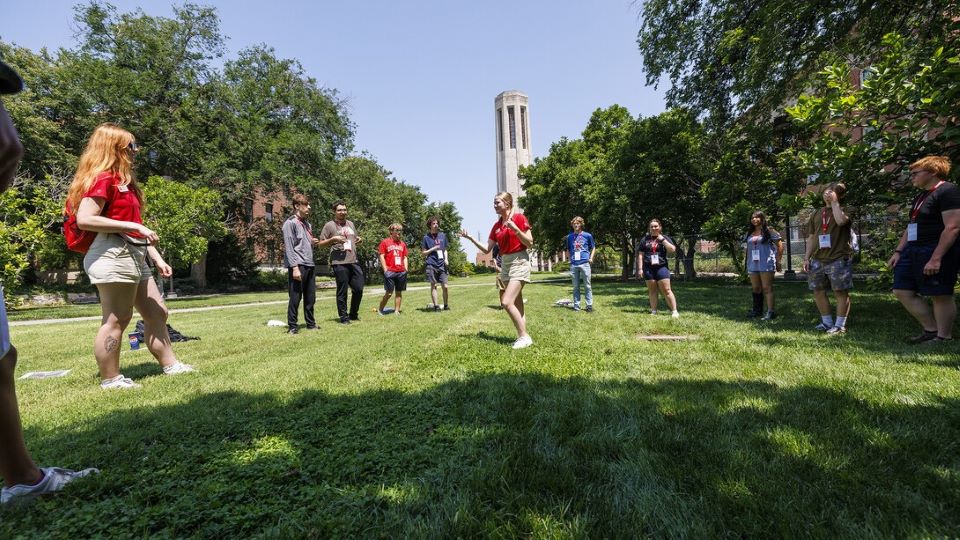
Qi (Steve) Hu, professor of Earth and atmospheric sciences, co-authored a recent study showing that desert climates have spread north by up to 62 miles in parts of central Asia since the 1980s. Stories on the research appeared in Earth.com, the Environmental News Network, The Indian Express and Nature.
Kelsy Burke, sociology, wrote a July 6 guest column for The Washington Post on white conservative Christians leveraging the issue of pornography to secure their power within American culture and law. She wrote that it is a tactic that has been used for more than a century, dating back to Anthony Comstock’s anti-obscenity campaign in the 1870s.
The university’s Extreme Light Laboratory was highlighted in a July 7 BBC Science Focus roundup of laboratories “pushing science to its limits.” The laboratory broke records in 2017 by generating a light a billion times brighter than the surface of the sun.
Casey Kelly, communication studies, co-wrote a July 11 piece for The Conversation with the University of Arkansas’ Ryan Neville-Shepard on some Republican politicians using guns in political ads as a coded appeal for white voters. “While they might have been a bit more ambiguous in the past, candidates are increasingly making these appeals appear more militant in their culture war against ideas and politicians they oppose,” they wrote.
Adam Houston, Earth and atmospheric sciences, was the featured guest on the WeatherBrains podcast July 19. He discussed the Targeted Observation by Radars and UAS of Supercells (TORUS) project, a multi-institutional investigation that aims to better understand supercell thunderstorms. The storm-chasing team concluded its most recent field research season June 17.
Dawn O. Braithwaite, professor emerita of communication studies, wrote a July 20 Psychology Today article on how people live both independently and together in close relationships. “Understanding our close relationships as a braided rope helps us to understand that while we are knitted together … we are also individuals,” she wrote.
New research co-led by Kate Lyons, biological sciences, shows that whether by the spear or the plow, humans have been homogenizing the mammal communities of North America for 10,000-plus years. Phys.org and ScienceDaily ran articles on the research.
The African Poetry Book Fund at Nebraska has received a three-year, $343,750 grant from the Poetry Foundation to study poetry book distribution in Africa, the Journal of Blacks in Higher Education reported July 28. The project is led by Kwame Dawes, English, who established the fund in 2012.


